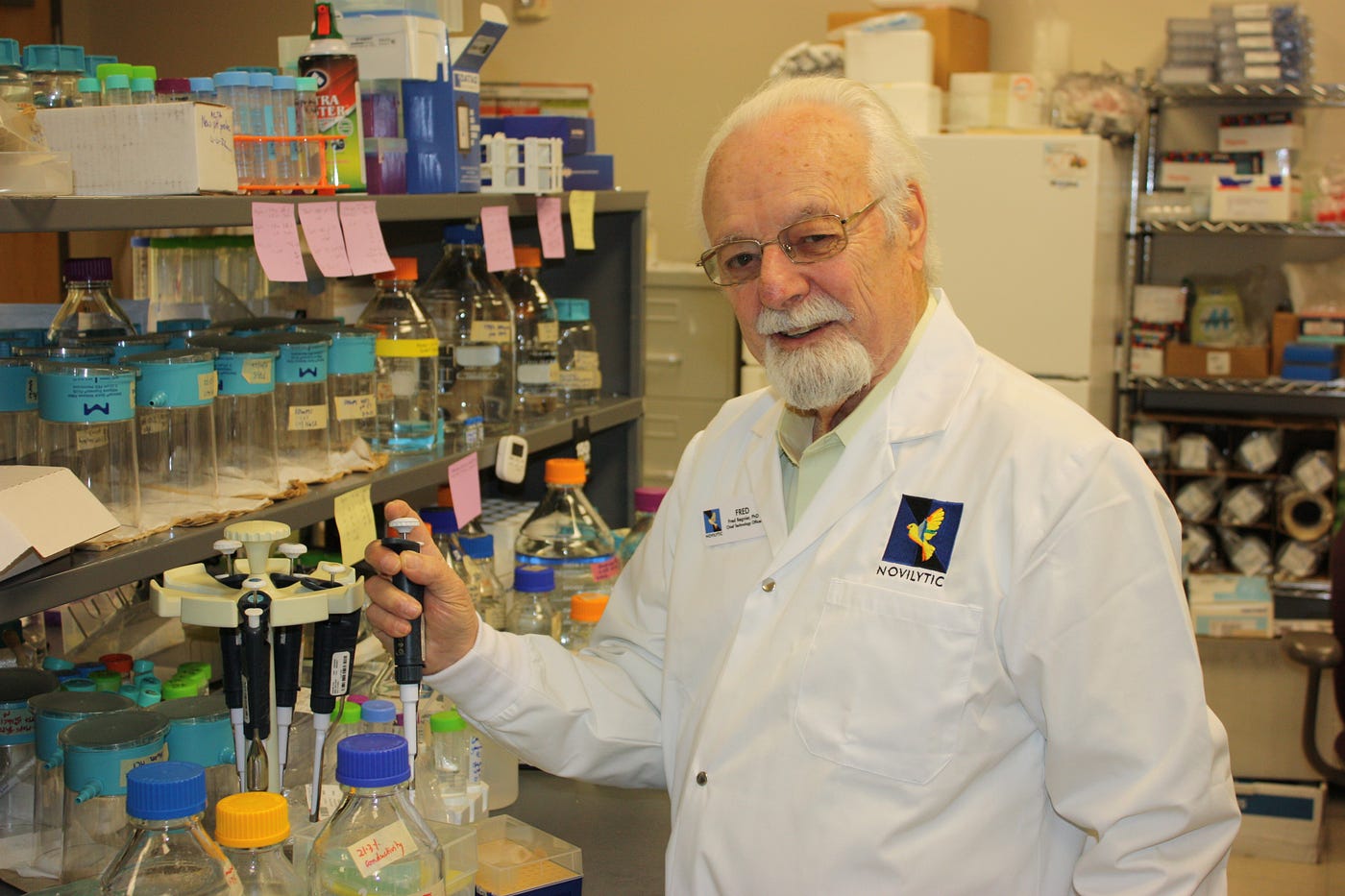June 10, 2022
Take 6: Fred Regnier, Novilytic

Fred Regnier is the former John H. Law Distinguished Professor of Chemistry in Purdue University’s Department of Chemistry. He also is the chief technology officer of Novilytic, a molecular recognition company that uses nanotechnology to protect lifesaving drugs. In layman’s terms, they help drug development companies to remain FDA-compliant during the manufacturing process.
Novilytic completed a $1.6 million seed round in addition to its $1.4 million National Institutes of Health Small Business Innovation Research grant. The seed round investments include contributions from Purdue Foundry and Elevate Ventures.
Regnier generously shared his time to answer our questions.

Question: What wisdom can you provide to someone interested in science and commercialization?
Fred Regnier: When I first came to Purdue, my office was adjacent to a very famous scientist named Roy Whistler. Roy took me to the library and showed me several old journals and scientific publications. He pulled one off of the shelf and pointed to a paper in the literature. He said, “The person that published this paper worked very hard and put in years of research for this accomplishment. Yet probably only 10–15 people have ever read this paper. Notice the pages are getting yellow.”
Roy told me that if you want your ideas to survive, you’re the one who has to take them to the public. This philosophy has stuck with me and is essential in growing our company, Novilytic.
Q: What are your special skills or unique talents?
Regnier: It’s not so much my skills as much as it is what directed me to where I am today.
As a young man growing up on a farm, one of the major things that we do is harvesting grain and seeds from plants — separating corn from the corn cobs and the wheat from the stalks. You then bring them forward in purified form. When I got into chemistry, I realized that the same large issue existed in chemistry and that there wasn’t a great difference between separating wheat and separating molecules from each other. When I discovered this I thought it was very interesting and that’s what I spent my life doing, separating, a.k.a. harvesting molecules.

Q: What is something that you wish everyone understood about your work?
Regnier: That what we do is simpler that everyone thinks. Chemistry and science everyone thinks are very complicated and difficult, but actually they’re not. They’re very different and unique, but it’s possible to explain them in ways that everyone will understand.
Large amounts of what modern society is about and how it’s evolved so quickly in the last 100 years is being able to harness natural molecules to work for us, the best examples being enzymes. For example, in the Coca-Cola that we drink, where did the sweetener come from? Corn. So we learned to take the starch out of corn and convert it into fructose, which we put in popular drinks. The use of enzymes and molecules to harvest thigs from nature and convert them into a form that’s useful to us is chemistry.
Q: What discovery do you still hope to make in your career?
Regnier: Not necessarily a discovery, but a field of science that has fascinated me for the last 20 years is that large numbers of molecules that are very useful to treat diseases come from fermenters. But you can’t take what comes out and inject them directly into the body, they have to be purified first.
Much of what I’ve done for the past 20 years has dealt with how you purify molecules to the state where you can actually use them in patients. Also, the degree to which we can recognize molecules more quickly to discover and monitor diseases is interesting; simplifying molecular identification to the point where you can almost do it at home to recognize that you have a disease, say that the disease is under control or that you need to take medication.

Q: Was there ever a time when you felt like the underdog? How did you handle it?
Regnier: At Purdue, when I worked with graduate students, I told them that we are always the underdog. This is because most of the students were just starting into science and the primary people who we’re competing against were billion-dollar companies. There was every reason they should beat us to the discovery and the only way we could compete was to outthink them.
I was taught to assume we were the underdog and behave that way. You always try to look at things that need improving. In analytical chemistry you either explore ways to do things better or things that have never been done. That’s a large part of what I have done in the last 30–40 years is to look for improvements. This is also what we do at Novilytic, we try to look at ways that allow you quickly to get answers during the development of therapeutic molecules that go into humans that you can quality control them in real-time, in minutes. There’s a great need for this when it comes to manufacturing therapeutic agents of very high quality.
This is how I believe that Novilytic will succeed as an underdog. What we’re trying to do is something that the U.S. Food and Drug Administration suggested should be done 25 years ago. None of the major companies in the world have ever been able to reduce this concept to practice.

Q: What is one habit that you’ve developed that makes you more efficient in daily life or work?
Regnier: Being detail oriented both in my personal life and my career. Breaking a problem down into the little details is so important. I learned to think like this a long time ago and it’s been essential: worry about making all of the little details fit together.
Thank you Fred Regnier for participating in the Take 6 feature!
